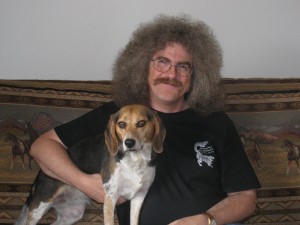The Death of Nikola Tesla
April 1, 2014When Nikola Tesla died, a little light went out from his groin. Sparrows pulled apart from his dead belly to reveal nomadic paths of bees, all alight with the northern…
When Nikola Tesla died, a little light went out from his groin. Sparrows pulled apart from his dead belly to reveal nomadic paths of bees, all alight with the northern lights repeating themselves on journeys from Namibia to Brazil. Telegrams poured in from the four corners of grief: Buffalo Bill proclaimed from his grave that this is what happens when you kill the cow before the bull; César Vallejo copied Tesla over and again into the skin of five notebooks, in the script of three different hands; Admiral Peary and roustabout Cook said the feud was finally over, that there never really was a North Pole to dispute anyway; and Edison wept near his recorder, nearly electrocuting himself on the magnetic pull of the frayed cord. The good people of Colorado Springs, where Tesla had lived, gathered in black on a rare day of rain and feared the light might one day even go out of their religion. The indigenous tribes of Cheyenne Mountain journeyed to Pikes Peak to try to capture afternoon lightning, though they knew the Peak by names less certain of posterity. Nocturnal animals shifted from possums to opossums, stink-badgers to skunks, blaming rogue sparks of moonlight in the not-yet-buried sun for their confused callings. Tesla had died as he had died, the barn owl hooted all light long. He will live, now, also as he has died. Nikolai and Pavlo and Yuri left the saloon and wondered why lamps in their mining hats had dimmed. Why their words were somehow stuck in their throats, even after shots of whiskey and a beer back. The poets spoke in the strange way poets speak: Karl Marx proclaimed, Death is the opiate of the people; John Bradley responded, Rain pours through rain even when it rains; Joe Gastiger guarded the grave and kept calling everyone Darling in the most adorable way; and Vallejo—Vallejo said nothing, fingering, instead, the outline of his skeleton through a suit coat that had grown too large, a skeleton he had washed every day, that somehow in Tesla’s death glowed in Paris or Peru with the auroras borealis of a life well-deathed.
–George Kalamaras (Allen County)
from the author’s book, The Mining Camps of the Mouth (New Michigan Press, 2012)
 George Kalamaras, current Poet Laureate of Indiana, is the author of fourteen books of poetry, seven of which are full-length. He is Professor of English at Indiana University-Purdue University Fort Wayne, where he has taught since 1990. The poem here is from his book, The Mining Camps of the Mouth (New Michigan Press, 2012).
George Kalamaras, current Poet Laureate of Indiana, is the author of fourteen books of poetry, seven of which are full-length. He is Professor of English at Indiana University-Purdue University Fort Wayne, where he has taught since 1990. The poem here is from his book, The Mining Camps of the Mouth (New Michigan Press, 2012).
Indiana Humanities is celebrating National Poetry Month by sharing a poem from an Indiana poet every day in April (hand-selected by Indiana Poet Laureate George Kalamaras). Check in daily to see who is featured next!

